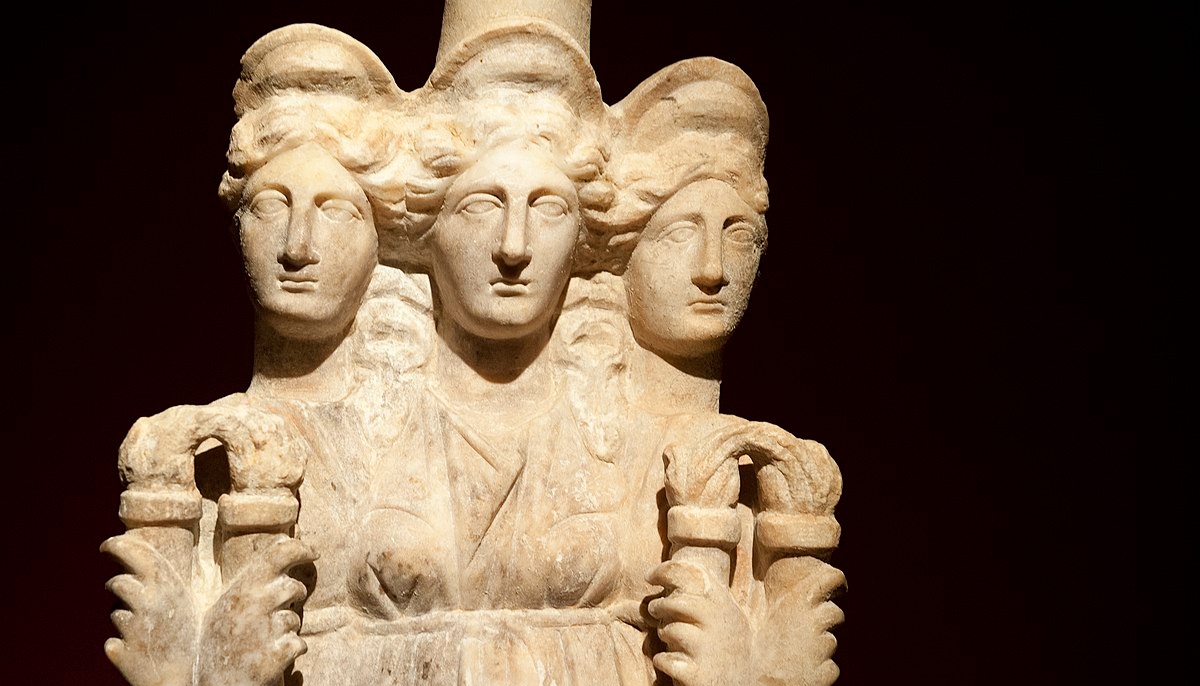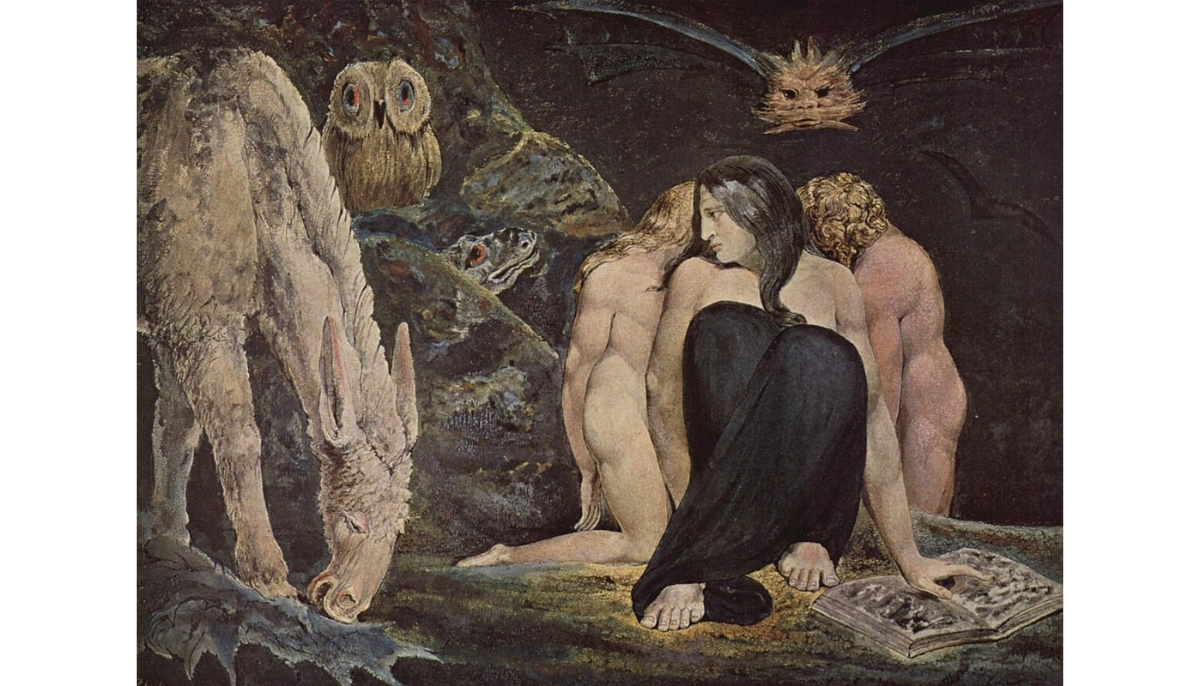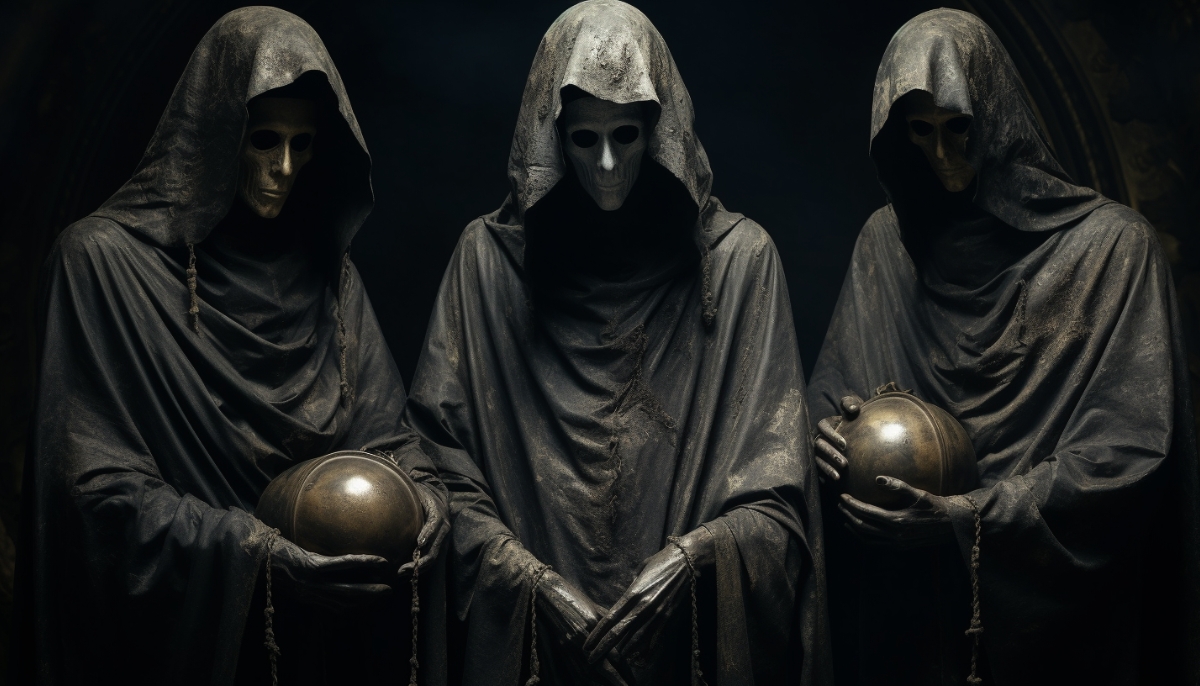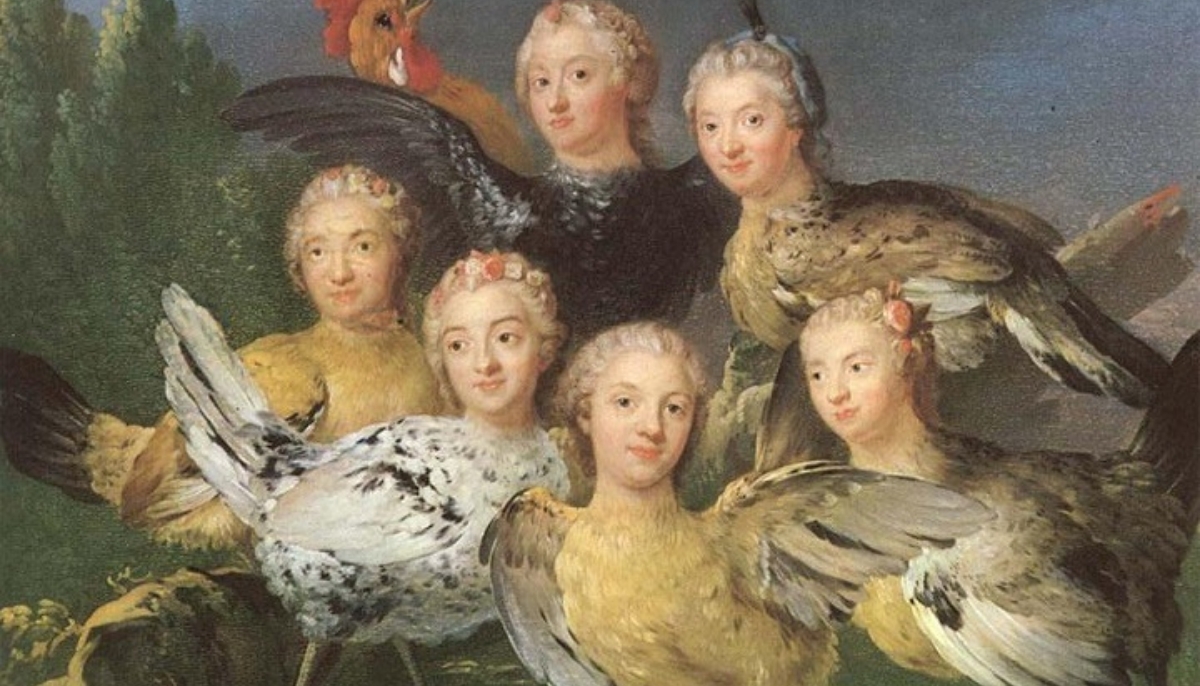As the goddess of crossroads, Trivia’s domain extended beyond the physical intersections of Roman roads to the metaphorical crossroads faced by individuals daily.
This article delves into the mythology, worship, and significance of the Roman Goddess Trivia, exploring her roles and representations within the pantheon of deities.
By examining her origins, her associations with other goddesses, and the rituals dedicated to her, we gain insight into how the ancient Romans navigated the complexities of their world with divine guidance.
Who Is The Roman Goddess Trivia
In Roman mythology, Trivia is the Titan-Goddess of Crossroads, embodying a supernatural force that conceals mythological events from mortal eyes. Known for her symbol of a crossed torch and key, Trivia is a liminal deity closely associated with transitions and thresholds.
Her divine interventions were sought in childbirth and guiding the dead, earning her the title of Queen of Ghosts due to her underworld connections.
Origin of Trivia
Trivia’s origins trace back to the Titans Perses and Asteria. Her allegiance with Jupiter and his siblings during the First Titan War secured her authority, avoiding the fate of other Titans who were banished to Tartarus.
Jupiter, Neptune, and Pluto rewarded her with dominion over aspects of the sky, sea, and underworld. In the First Giant War, Trivia, with Hercules’ help, defeated Clytius using her torches, showcasing her bravery and strategic prowess.
Triple Form of Trivia

Trivia’s unique attribute as a triple goddess allows her to manifest in three forms: the maiden, the mother, and the crone, each symbolizing different life stages and aspects of her powers.
Her appearance varies from a young girl with curly blond hair and warm brown eyes to a maternal figure with brown hair and blue eyes, and finally, to an aged woman with long silver hair and stormy gray eyes, embodying wisdom and guidance.
Trivia and Hecate
Trivia and Hecate represent two facets of the same divine essence, bridging Roman and Greek traditions through their shared domains and attributes. While Trivia is revered in Roman mythology as the Goddess of Crossroads, her Greek counterpart, Hecate, holds a complex role that spans the chthonic, celestial, and maritime realms.
Hecate’s association with crossroads, gates, and various passages underscores her as a guardian of transitions, much like Trivia. This role extends to guiding souls to the underworld, overseeing childbirth, and illuminating dark paths, thereby mirroring Trivia’s functions.
However, Hecate’s attributes extend even further, encompassing lunar lore, the night sky, the sea, wilderness, and the domain of the restless dead. Her connection with dogs, snakes, healing, and poisonous plants, as well as her profound influence over magic and witchcraft, highlights her as a deity of protection, wisdom, and transformation.
The reverence for Hecate as a goddess of witches further cements her legacy in the cultural and spiritual consciousness across epochs. This aspect was famously highlighted in the early portrayal of witchcraft within Shakespeare’s “Macbeth,” where Hecate’s embodiment as the Mother Goddess aligns with her dominion over magic and the supernatural.
Triad of Goddesses – Trivia, Luna, and Diana
Trivia holds a significant position within Roman mythology as part of a triad of goddesses, which includes Luna, the moon goddess, and Diana, the goddess of the hunt.
This grouping underscores the interconnected roles of these deities in Roman spirituality, highlighting the importance of the moon, hunting, and the crossroads within the Roman pantheon.
Each goddess in the triad represents different aspects of the natural and supernatural world, emphasizing the Romans’ reverence for nature and its elements.
Worship Of Trivia In Ancient Rome

Traveling in the ancient world was fraught with challenges and perils, especially on Roman roads after dusk. The Roman Empire was renowned for its extensive network of roads, facilitating the movement of armies, goods, and messages across vast distances.
However, for the ordinary traveler, these journeys were anything but straightforward. Navigation was difficult due to the lack of detailed maps and signposts, and the threat of bandits or wild animals added to the traveler’s woes. Darkness compounded these dangers, making night travels a risky endeavor.
The Danger of Crossroads
Crossroads, in particular, were symbolic and literal points of danger. They were places where paths diverged, offering travelers multiple directions but little guidance on which road to take. The absence of light, save for the deceptive glow of the moon, made these decisions even more daunting.
It was in this context that Trivia’s worship gained significance. Effigies of Trivia were strategically placed at Crossroads as a plea for her protection and to guide those who found themselves at the mercy of the night. Offerings at these sites—from food and wine to perfumes and flowers—were made to appease the goddess and secure safe passage.
The inherent dangers of road travel often made sea voyages a preferable alternative despite their own risks, such as storms and piracy. The Romans, adept at engineering and navigation, utilized the Mediterranean Sea to connect the vast expanse of their empire efficiently. Sea travel was quicker and often safer than the uncertain and treacherous paths on land. Ships could carry more goods and traverse longer distances in shorter timeframes, a vital advantage for trade and military logistics.
Guided by Trivia

This reliance on Trivia’s guidance at crossroads underscores the ancient Romans’ deep-seated need to seek divine protection in the face of these everyday challenges. The goddess’s role as a guardian of roads and her representation as a triple divinity reflect the multifaceted nature of travel in the ancient world—encompassing the physical, the spiritual, and the metaphysical.
Through the worship of Trivia, Romans sought to navigate the physical intersections of their vast road network and the metaphorical crossroads of fate and decision-making, highlighting the complex relationship between humans, their gods, and the unpredictable world they inhabited.
Appropriate Offerings and Rituals
The worship practices for Trivia involved the dedication of altars and sanctuaries, where prayers, vows, and sacrifices were made in her honor. These rituals mirrored those of other Roman divinities, employing a variety of offerings such as milk, honey, grain, fruit, cakes, flowers, perfumes, and wine.
The nature of the sacrifices—ranging from white animals for upper-world deities to black animals for underworld gods—reflected the dual nature of Trivia’s domain.
Specifically, female animals were sacrificed to Trivia, aligning with the gender of the goddess and adhering to Roman sacrificial customs.
These practices were not just acts of devotion but also a means to maintain favor and seek protection from the uncertainties and dangers associated with crossroads and travel.
In exploring the mythology and worship of Trivia, the Roman goddess of crossroads, we uncover a fascinating aspect of ancient Roman life that intertwines the spiritual with the practical.
Trivia’s significance as a guardian of travelers and guide at life’s metaphorical and physical crossroads sheds light on the ancient Romans’ attempts to navigate the uncertainties of their world.
Through rituals, offerings, and the veneration of divine protectors like Trivia, Luna, and Diana, they sought assurance and guidance in their daily lives and endeavors.





